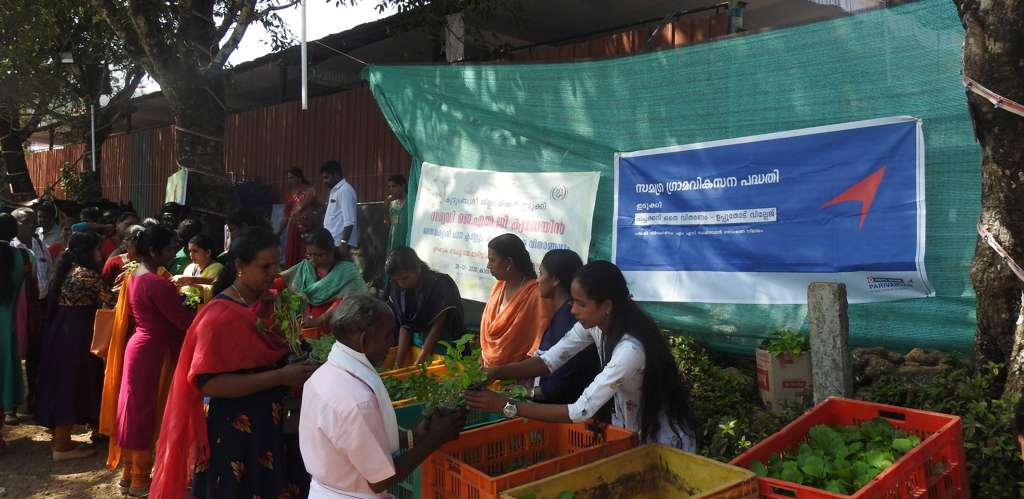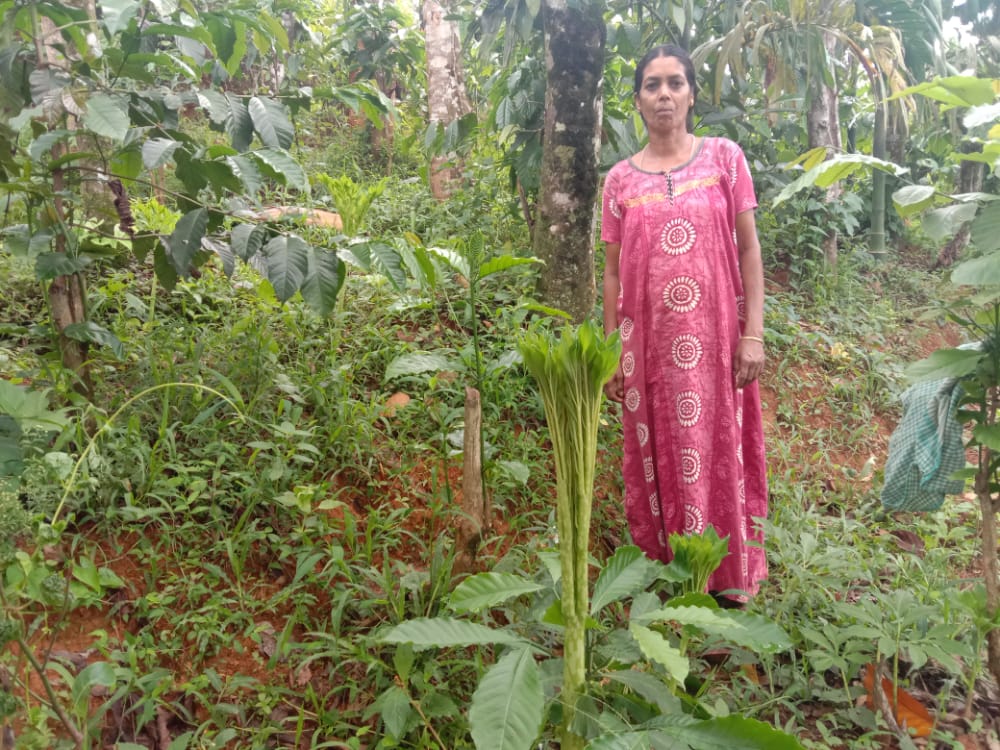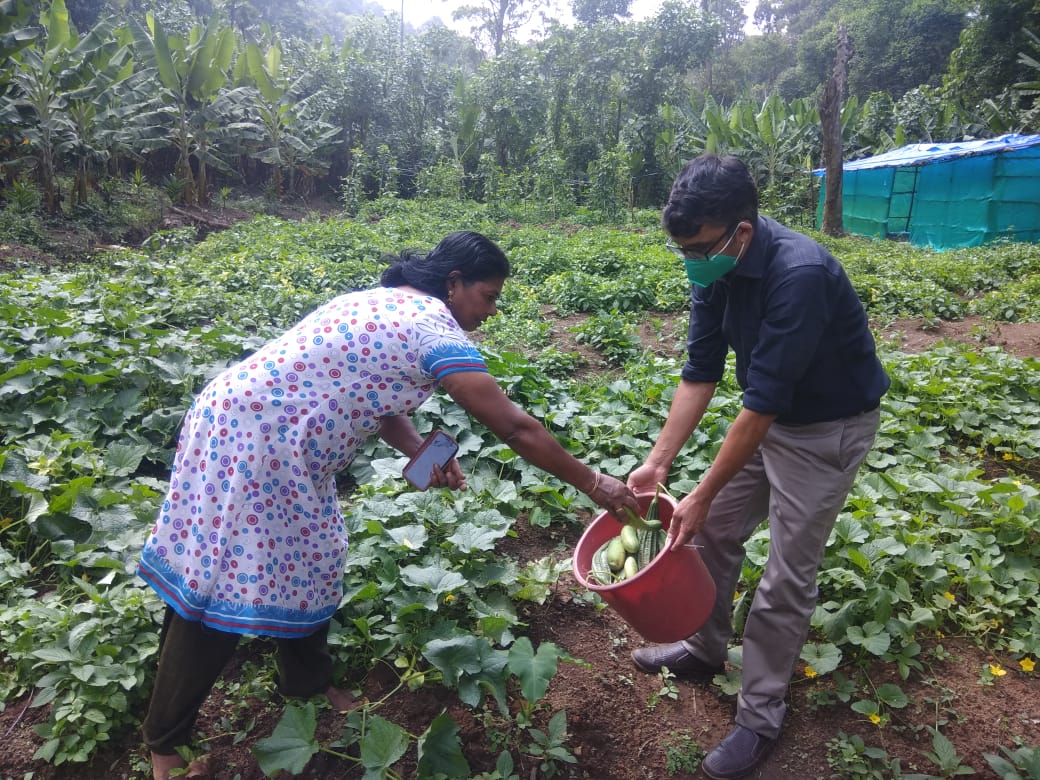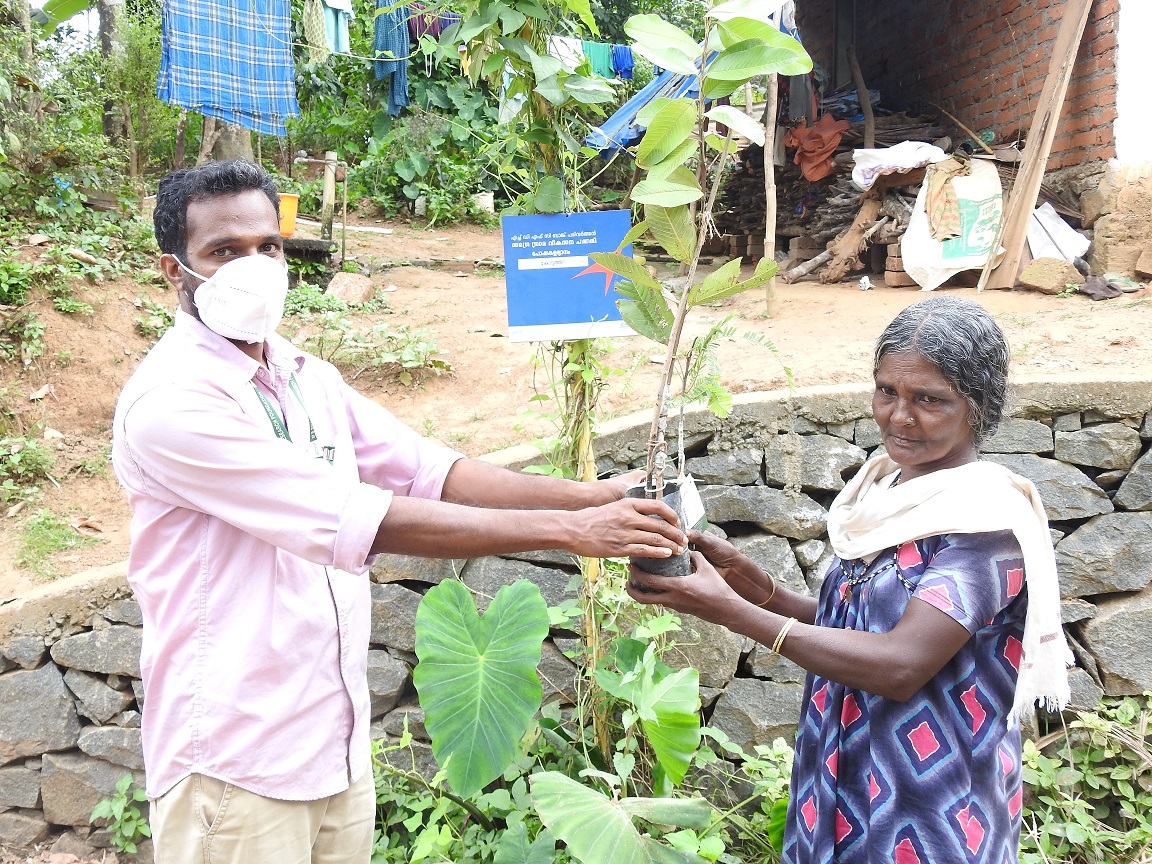Studies reveal that influx of cash crops, high availability of vegetables in the market and increased purchasing power of households have caused a reduced diversity in home gardens. This has adversely affected the nutrition intake of the people as well as increased the market dependency for the items which were once available in the homesteads. Also, the adverse climatic conditions such as flash floods and drought create highly vulnerable circumstances for the growth and survival of certain vegetables in the villages.
Kitchen Gardens at Idukki
The local geography and climatic conditions of Idukki district are in support of growing vegetable throughout the year. A good percentage of cultivated land is still farmed by traditional or subsistence methods. Since nowadays the production of vegetable in the farmlands of Idukki drastically reduced due to some constraints such as the low price of the produce, lack of marketing facilities, limited transport facilities, high input cost, pest and diseases, human-animal conflict, climatic change, lack of irrigation and soil conservation measures. And vast part of this region now occupied with perennial cash crops by small scale farmers. Local people also began to depend on nearby states such as Tamilnadu and Karnataka for their day to day vegetable needs. All these issues and challenges pointed to an urgent concern.
Through the HDFC Bank- Parivartan programme, vegetable seedlings and treated vermicompost have reached 3200 households in the project villages of Kanjikkuzhy, Idukki, Upputhode, and Vathikudy. The Joint Liability Groups under the Kudumbasree mission was the programme partners to identify and coordinate the distribution. Each household has received 10 numbers of seedlings of Tomato, Cabbage, Beans, Chilli and Okra and 5 kg of double treated vermicompost.
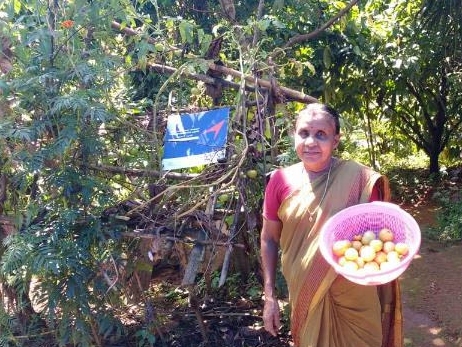
“This activity was the need of the hour and has helped a lot to marginal households like us”
Mrs. Sarasamma, Kanjikkuzhy
The reflections from the stakeholders indicate that the vegetables raised in the kitchen gardens were serving the dietary needs of the households. The follow-up random questionnaire survey among the beneficiaries has reflected with responses from 481 women farmers. The results indicate that the vegetable seedlings support has enhanced vegetable availability in kitchen gardens of all the four project villages. Seventy-Five percentage (75%) of the beneficiaries was women farmers in the age group of 30-60 years. Forty-Two percentage (42%) of the respondents were maintaining their kitchen gardens in good health, in which 38 percentage (38%) was involved in kitchen gardening during the stressful COVID period. Forty-Eight (48%) of them reported that the kitchen gardening has helped in soothing their stressful days during the COVID lockdown period. Seventy-Seven percentage (77%) of them was found that the vegetables from the gardens were very useful in the lockdown days. The monitored kitchen gardens have altogether produced 1152.5 kg of Okra, 1815 kg of Tomato, 902.5 kg of Chilli and 2068 kg of other vegetables in a month, on an average. Forty-Eight percentage (48%) of them is planning to continue vegetable cultivation, forming groups under the Kudumbasree initiatives.
Kitchen Gardens at Wayanad
The Kitchen Garden, a flagship initiative of MSSRF aims to introduce a farming system for nutrition to various households in Adivasi communities of Wayanad to tackle the nutrition deficit among these communities. Kitchen Garden promotes diversification of home gardens with food crops with indigenous varieties of tubers, leafy greens, peas, and various seasonal vegetables. These home gardens are managed by women from households who follow effective preservation practices for perishable fruits and vegetables, mushrooms etc. so that food is ensured round the year.
A total of 1000 households, 200 each from the villages of Pozhuthana, Achooranam, Vengappally, Kottathara and Panamaram participates in this Kitchen Garden initiative, funded by the Parivartan programme of HDFC Bank An awareness campaign on food and nutrition security is also a part of the programme.
Also, summer vegetable seedlings were distributed among 10 women groups of Wayanad District. These groups cultivated crops like Tomato, Bottle Gourd, Cucumber, Chillies, Legumes, Brinjal, and pumpkin.The average yield for each group was 600 kgs of vegetables per acre. A Cumulative yield of 2000 kgs was harvested. The group could earn an additional income of Rs.5000 through the sale of these vegetables.
The primary report shows that the intervention has improved the families’ access to nutritious food.
The vegetable cultivation also serves as a source for their own consumption during the period of lockdown and pandemic.

